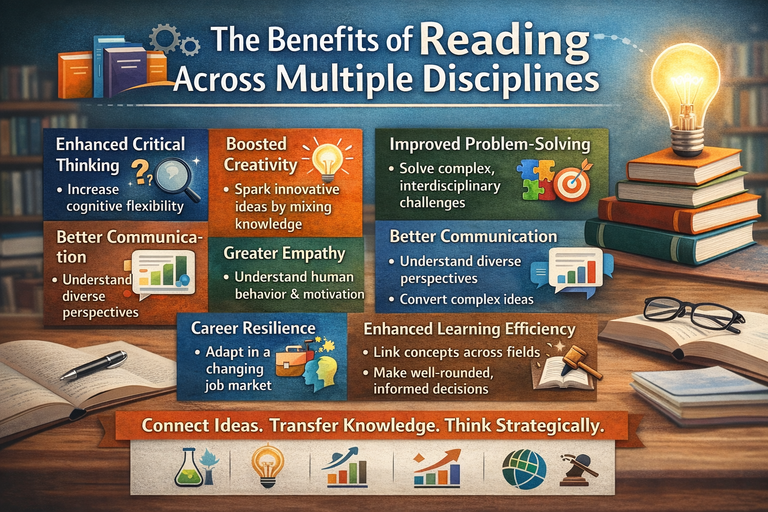Book Clubs for Sports Lovers: What to Read and Why
Book clubs are no longer the exclusive domain of literary fiction fans sipping wine over Jane Austen. In recent years, there's been a noticeable rise in book clubs tailored for niche communities, and one of the most passionate among them is the world of sports lovers. These book clubs don’t just explore athlete memoirs or recaps of epic games—they dive deep into themes of perseverance, identity, justice, and cultural change, all through the lens of sport.
In this blog post, we explore how book clubs for sports lovers are thriving, what kinds of books they read, and why they’re essential for blending the love of storytelling with athletic passion.
Why Sports Book Clubs Matter
Sports are about more than scores and championships—they're about the human stories behind the games. Athletes are complex individuals, teams mirror society, and sports itself often reflects broader cultural shifts. Sports book clubs offer readers the opportunity to:
-
Connect through shared interests
-
Explore sports culture beyond headlines
-
Discuss issues like race, gender, nationalism, and mental health
-
Celebrate unsung heroes and groundbreaking moments
These clubs serve as meeting points for fans, athletes, coaches, and everyday readers looking to engage with sports on a deeper level.
What Types of Books Do Sports Book Clubs Read?
There’s a surprisingly rich variety of genres that appeal to sports-centric book clubs. Here are some favorites:
1. Biographies and Memoirs
These books offer personal insights into an athlete’s career, mindset, and personal life.
-
Open by Andre Agassi
-
Becoming Kareem by Kareem Abdul-Jabbar
-
I Came As a Shadow by John Thompson
2. Sports Journalism and Investigative Nonfiction
These titles focus on behind-the-scenes dynamics, scandals, and business in the sports world.
-
The Breaks of the Game by David Halberstam
-
Friday Night Lights by H.G. Bissinger
-
Game of Shadows by Mark Fainaru-Wada and Lance Williams
3. Sports Fiction
Fictional stories about athletes, coaches, or fans that still explore real-world emotions and issues.
-
The Art of Fielding by Chad Harbach
-
Shoeless Joe by W.P. Kinsella
-
Billy Lynn’s Long Halftime Walk by Ben Fountain
4. Young Adult Sports Novels
Perfect for intergenerational clubs or clubs involving student-athletes.
-
Ghost by Jason Reynolds
-
The Crossover by Kwame Alexander
-
Heat by Mike Lupica
5. Thematic Reads
Books not necessarily about sports but that explore themes relevant to athletes and fans—teamwork, competition, failure, resilience.
Recommended Books to Get Started
If you're launching or joining a sports-themed book club, consider these well-rounded picks:
-
“Eleven Rings” by Phil Jackson – A mix of basketball, leadership, and philosophy.
-
“A Woman’s Game” by Suzanne Wrack – An exploration of women’s football and the struggle for equality.
-
“Mamba Mentality” by Kobe Bryant – Visual and strategic insight into a legendary mindset.
-
“We Ride Upon Sticks” by Quan Barry – A quirky, feminist sports novel about a high school field hockey team in the ‘80s.
Discussion Topics That Spark Conversation
Reading a sports book is one thing. Discussing it through multiple perspectives is where the magic happens. Here are sample questions and discussion prompts to fuel your meetings:
-
How does the athlete’s background influence their journey?
-
What role does politics or race play in the narrative?
-
Did the author glorify or critique sports culture?
-
Were there moments that challenged your assumptions about sports?
-
How do the book’s themes connect to current events?
These questions help bridge sports talk with broader social and literary conversations, appealing to a wider range of readers.
How to Start a Sports Book Club
Launching a sports-focused book club isn’t hard—but doing it right requires intentionality. Here’s a step-by-step approach:
Step 1: Identify Your Audience
Are you aiming for die-hard sports fans? Athletes? Casual readers who like memoirs? Knowing your base will help guide your book choices and discussion format.
Step 2: Choose a Format
Decide how often to meet (monthly works best), and whether your meetings will be in-person, virtual, or hybrid. Virtual clubs open the door for international discussions and occasional guest authors.
Step 3: Curate a Diverse Reading List
Mix memoirs with fiction, global sports with local stories, and include voices from different backgrounds—female athletes, LGBTQ+ narratives, disabled sportspeople, etc.
Step 4: Create a Discussion Structure
A rotating facilitator or dedicated moderator can keep discussions focused. Consider themes per session like “Team Dynamics,” “Breaking Barriers,” or “The Business of Sports.”
Step 5: Engage Between Meetings
Use email newsletters, social media groups, or group chats to stay connected, share reviews, or link to interviews and articles about the author or subject.
Famous Book Clubs That Feature Sports Reads
You don’t have to start from scratch—some well-known book clubs and platforms already explore sports narratives. You can borrow inspiration or even align your reading schedule with theirs.
-
Goodreads “Sports Lit” Group – A large online community for fans of all sports genres.
-
Book Clubs run by ESPN or The Players’ Tribune – Occasionally feature athlete autobiographies and thematic reads.
-
Athlete-led Book Clubs – Stars like LeBron James and Malcolm Jenkins have hosted reading initiatives that include sports content.
Why Publishers Should Take Note
The growing interest in sports book clubs also signals an opportunity for publishers:
-
Market niche: Sports readers are loyal and often underserved in the literary world.
-
Cross-promotion potential: Pairing books with sports events or merchandise can drive sales.
-
Author engagement: Many athletes are eager to connect with fans through discussion-based formats.
With the rise of bookstagram, podcasts, and virtual panels, sports book clubs are becoming powerful platforms for literary visibility and brand growth.
Sports as a Universal Language
One of the most beautiful things about sports is its universal resonance. A soccer story in Nigeria can connect with readers in the U.S. or Japan. A tennis memoir can speak to issues of race, class, and gender across cultures. Book clubs based on sports stories have the unique ability to cross demographic lines and bring together unlikely communities.
They show us that behind every highlight reel or newspaper headline, there’s a story worth reading—and retelling.
Conclusion: Where Passion Meets the Page
Book clubs for sports lovers are more than just a niche—they’re a growing movement that recognizes how powerful storytelling can be when grounded in athletic experience. These clubs celebrate passion, explore identity, and foster empathy, proving that the best sports stories aren’t just played on the field—they’re written in the margins and discussed over bookshelves.
So whether you’re a die-hard fan or a curious reader, there’s a book—and a book club—waiting to connect you with the thrilling, complex, and deeply human world of sports.






